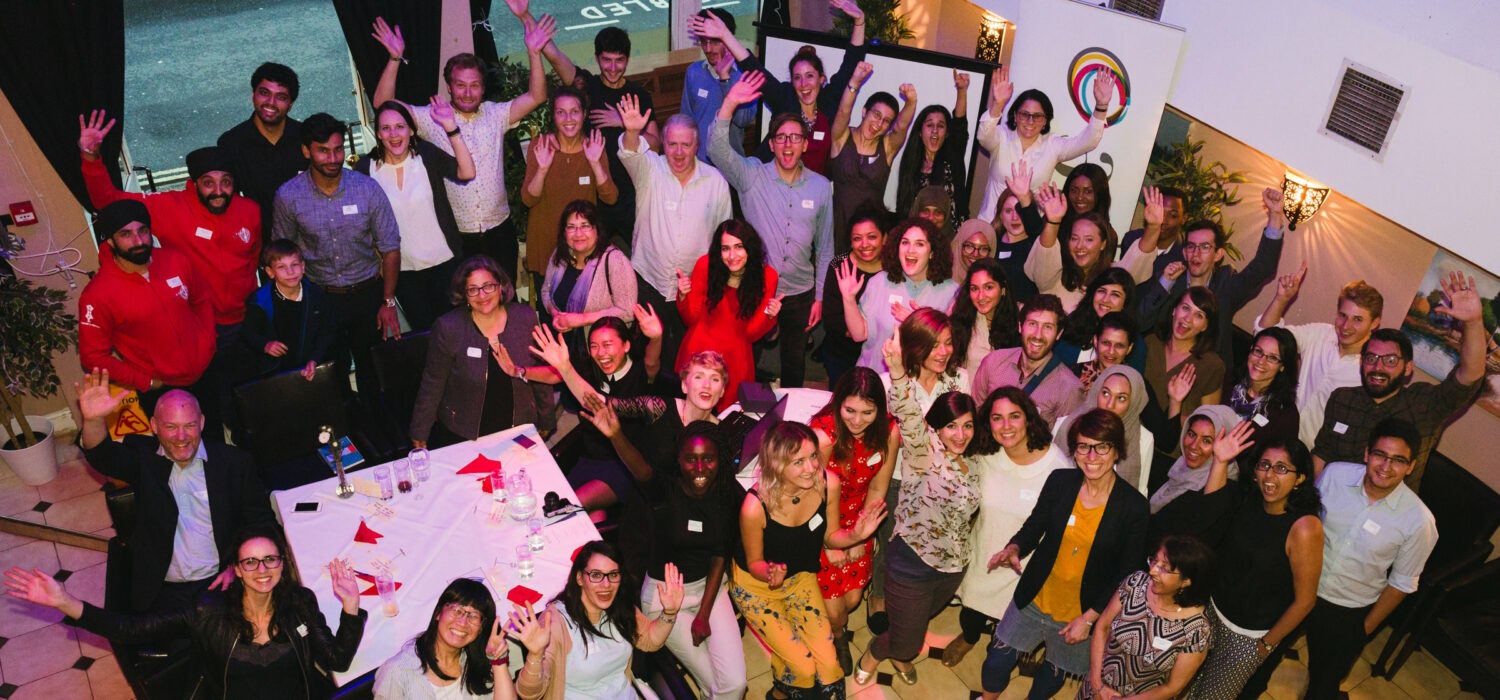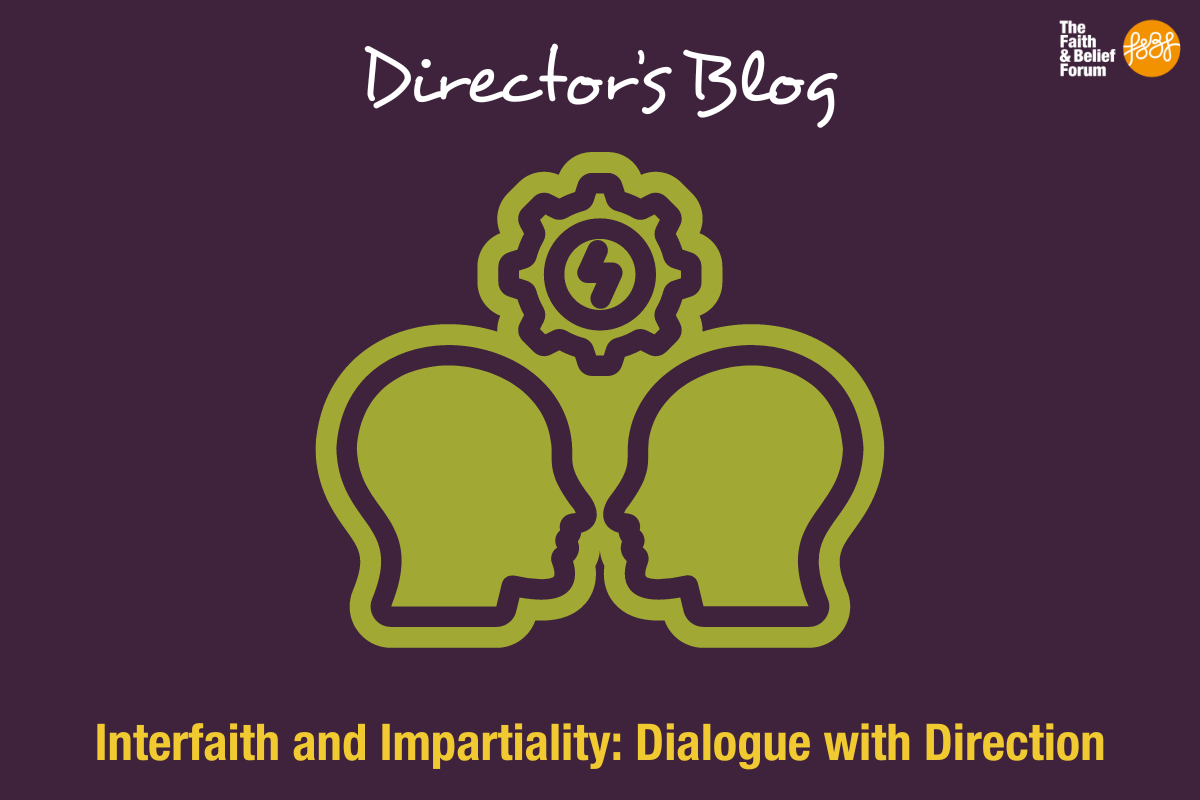
Challenging Faith Based Hate: True Stories
16 / 02 / 24
Menu

04 / 05 / 23

By Philip Ybring, Communications Manager at the Faith & Belief Forum
As I’m leaving my role at the Faith & Belief Forum (F&BF), I reflect on the changes I have seen and lessons I have learnt after well over a decade (13 years!) in the interfaith sector.
When I joined the organisation back in 2009 it was still called the Three Faiths Forum and the remit – as the name suggest – was to bring people from the Muslim, Christian, and Jewish faiths together. But the Director at the time, Stephen Shashoua, as well as the rest of the team, realised that an interfaith organisation working with only three faiths was unlikely to have the kind of impact it needed long term, especially considering the growing diversity of British society. Within a year or two, most of our programmes were involving people of all faiths and beliefs, both religious and non-religious.
The organisation was convinced that interfaith needed to move beyond what was jokingly called “bagel-tea-samosa” events where community leaders got together and talked about how much their faith traditions have in common but rarely addressed challenging issues. While there is definitely an important place in the interfaith movement for events that celebrate commonalities, real change demands that we engage with difficult questions, actively break down barriers, and build closer relationships through positive social action.
So, the Three Faiths Forum/3FF shifted its focus to more grassroots work involving young people at schools and universities. While still organising dialogue events for leaders, the day-to-day activity of the organisation was all about actively bringing younger people together to challenge stereotypes through facilitated encounters.
We recognised that truly effective interfaith work needed to include not just face-to-face dialogue but also side-by-side action. By working together on joint projects, people develop a shared sense of group identity which helps break down barriers and create more positive relationships. Education, engagement, and social action became the backbone of the organisation and so it remains to this day.
When I joined, our school workshops, the school linking programme, and the ParliaMentors leadership scheme for university students were all relatively new. At the time this sort of grassroots interfaith work involving younger people in dialogue and social action was still relatively novel. Although it’s difficult to quantify exactly what our impact has been, I would like to think that F&BF has played an important role in making this style of interfaith more mainstream and widespread.
The guiding principle behind a lot of the work was and still is the idea of ‘meeting people where they are’. You can’t expect people to come to you, you need to go to the spaces, institutions, and communities where people already are, understand their concerns, and deliver programmes that respond to their needs.
When Director Phil Champain took over the leadership of the organisation in 2015, he further cemented this focus on working with diverse communities not just on dialogue but on social action. Recent years have seen F&BF expand its reach and remit, establishing a presence in more parts of the country. We have also developed the organisation’s voice by getting more involved in research, doing consultancy for local authorities, and shaping the wider societal discussions about social integration and inclusion.
Beyond the regional reach, we have diversified the ways we engage people through expanding our community work, starting up awards schemes, and running exciting events like the annual Interfaith Fun Run. All ways of continuing to bring interfaith to even more people ‘where they are’.
All these changes meant that the organisation’s external identity needed a rethink and a refresh, and in 2018 we finally launched our new name and brand – The Faith & Belief Forum. Developing the new brand identity was a long and complicated process involving stakeholders inside and outside the organisation. It is perhaps the most challenging project I have led in my career so far but also the most satisfying. In some ways the F&BF brand feels like the culmination of the process of change that began around the time I joined the organisation. The brand finally reflects what the organisation always aspired to be – fully inclusive of all backgrounds and welcoming of all aspects of identity. I’m proud to have been involved in making that happen.
As a communications professional, F&BF has been a veritable goldmine of exciting stories and engaging content. The organisation really is open to trying anything and everything to create spaces and opportunities that bring people together across difference, and we have worked in lots of different contexts and locations. The sheer diversity of F&BF’s projects over the years has given me opportunities to work on initiatives ranging from roundtables and teacher trainings to art exhibitions and awards ceremonies. I have posted social media updates from local schools as well as international conferences. I leave with a wealth of experience of developing communications strategies relating not only to faith and belief but to education, leadership, community cohesion, arts, and even sports.
From its inception, F&BF has been animated by the recognition that social cohesion and unity is essential to a healthy society. If divisions between people from different faiths, beliefs and cultures remain unaddressed, this has serious consequences not just in terms of the growth of prejudice and hate, it also makes it harder for us to address societal issues together. When our energy and time is spent worrying and arguing about groups and individuals who are seen as ‘other’, we have little left to spend on the pressing issues facing our society.
The core insight of interfaith work is that most of these worries and tensions go away when you bring people together and enable them to better understand each other and work together. Once you meet the ‘other’ face-to-face and have a chance to get to know them, it turns out many of our concerns were imaginary and based on oversimplified stereotypes.
I believe that most hate is downstream from fear. Most people don’t start out hating others because they are malicious in some fundamental way. It’s usually because they feel threatened by the other and develop negative attitudes to defend themselves and their way of life. Put simply, people fear what they don’t understand. That fear, if left unchecked, can easily turn to hate. It is very important, therefore, to work to reduce people’s anxieties about groups they’re not familiar with.
In my experience, when you bring people together through effective interfaith work, three things basically happen:
This ability to disagree without dehumanising the other is vital in our current situation. The human tendency to scapegoat and assign blame for society’s ills on specific groups or individuals may be part of our nature, which is why it’s so important to challenge it whenever it occurs. Most societal problems are complex and can certainly not be reduced to the bad intentions or beliefs of some particular group of people. Interfaith work is one very powerful antidote to such thinking, which enables us not only to break down these oversimplified prejudices, but also to build relationships to challenge the real causes of social issues together.
Incidentally, I believe those of us who work for unity and acceptance of differences in society can fall prey to the same error by blaming any tensions on ‘intolerant people’ holding back progress. This, too, is a scapegoating way of thinking that puts the blame on a monolithically bad ‘other’ rather than seriously engaging with the causes and complexities underlying issues. If we became even better at ‘meeting people where they are’ and addressing their concerns and anxieties we might find that we become more effective agents of unity, inclusion, and understanding.
And with those words, I’m signing off. After well over a decade in interfaith the time has come for me to move on to another important cause. But if the events of the last few years have taught us anything, it should be obvious that interfaith work remains essential to a healthy society.
Every year since I joined the organisation, we have said the same thing, and every year it remains true: Interfaith work is needed now more than ever.
I encourage everyone to get involved with F&BF. The future belongs to people of all beliefs, and we need you to help make that future a reality.

16 / 02 / 24

15 / 02 / 24

16 / 01 / 24